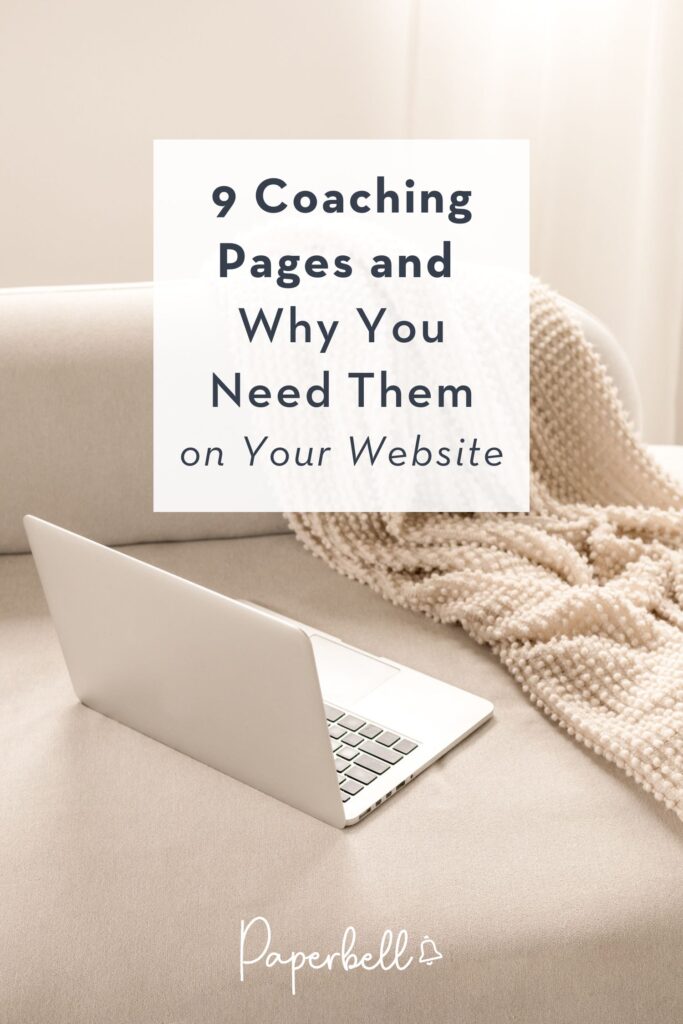The best coaching websites are well-structured, building trust and converting leads into clients. Each page serves a specific purpose, such as showcasing your services, sharing your story, or making it easy for new clients to contact you.
In this quick guide, we’ll go through all the coaching pages you need, some optional add-ons, and how to optimize them for maximum impact.
9 Pages to Add to Your Coaching Website
Your website will attract more coaching clients if you clearly communicate who you are and what you offer. Here’s a breakdown of how you might structure your coaching website.
- Home page: Your main page should make a clear first impression of your brand personality. It should position you by explaining who you are, who you work with, and how you help them. It should also seamlessly navigate visitors to subsequent pages to learn more about you.
- About page: This is the place to introduce yourself in more detail and build a personal connection. Share your story, experience, and coaching philosophy to help potential clients understand why you’re the right choice for them.
- Services page: Great coaching websites outline their programs and offers clearly, describing what’s included and the outcomes clients can expect.
- FAQ page: Answer common questions your clients may have about your coaching services to make their decision easier. This can either be a standalone page or a section of your main or services page.
- Testimonials page: Feature your best success stories and client feedback here. Let happy clients do the talking, or build anonymous case studies that demonstrate your process. This can also be incorporated into other pages.
- Contact page: Include a contact form where clients can get in touch with you. This doesn’t just look more professional but also prevents spammers from getting your email address. If you coach locally, you can also share the address of your office here.
- Booking page: Alternatively, make it easy for clients to book discovery calls or online coaching sessions with you right away through an online calendar.
- Blog or free resources page: This is optional but sharing valuable content related to your expertise can help you attract more clients. Plus, search engines love it too.
- Client portal: Giving coaching clients access to their materials, contracts, as well as their past payments and bookings makes your life easier because they won’t email you every time they need something. If you run large memberships, you may also keep your membership platform on your website.
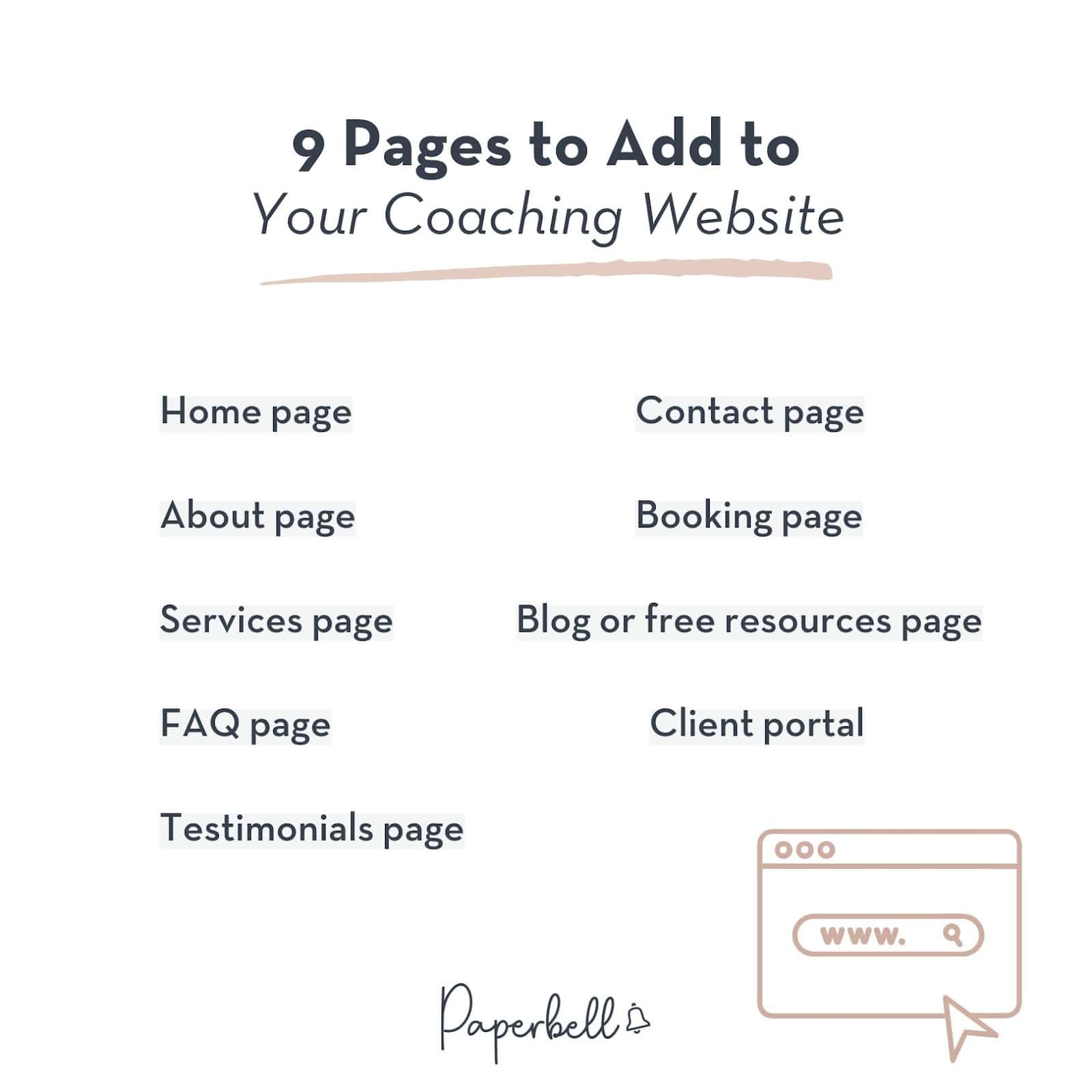
Again, you don’t need to create all of these as separate pages. FAQs and testimonials are often a part of the home or services page. It’s also perfectly fine to repeat key sections across multiple pages or to organize everything into a one-pager website.
[ Read: How Coaches Can Build Their Website Without Coding ]
It usually makes sense to give sections their own page if the content is extensive and would disrupt the flow of other pages.
Get a Ready-to-Go Website With Paperbell
Paperbell is an all-in-one website and client management tool that automatically sets up a professional coaching site for you—like this one.
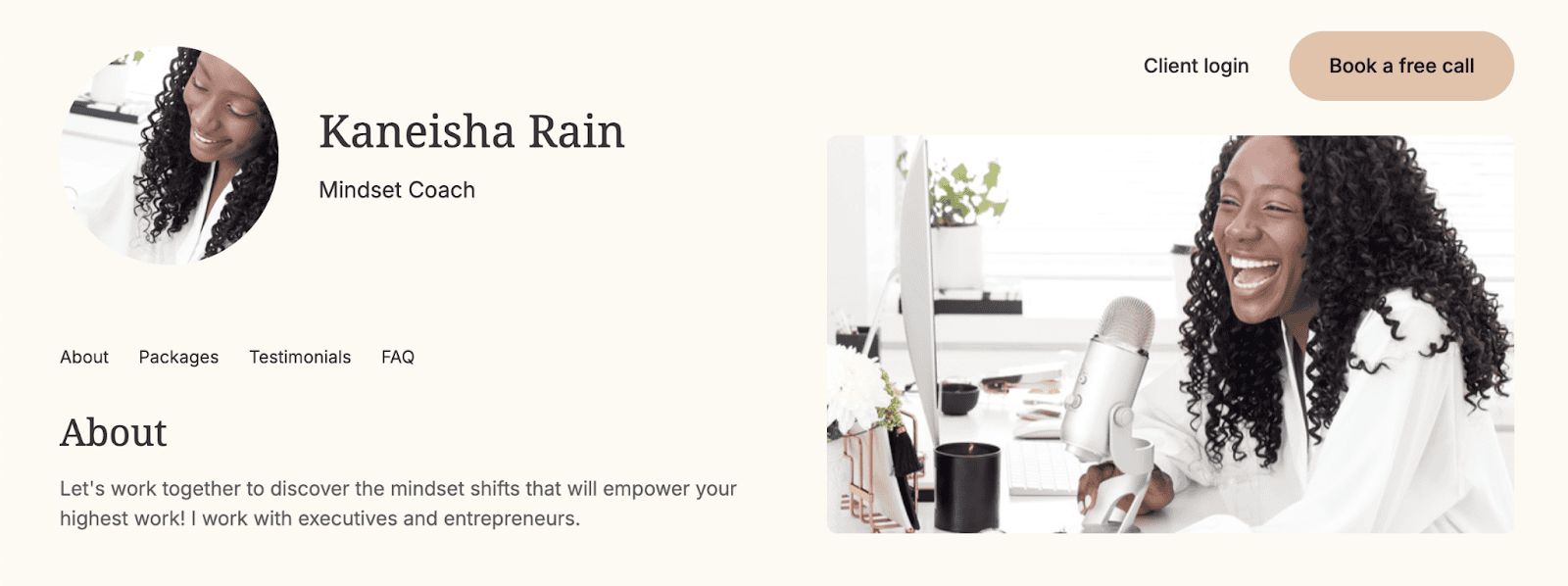
Your home page will feature all essential information about you, such as your bio, coaching packages, testimonials, and FAQs. Clients can navigate to separate landing pages for each of your packages or head to your booking page to schedule a discovery session with you.
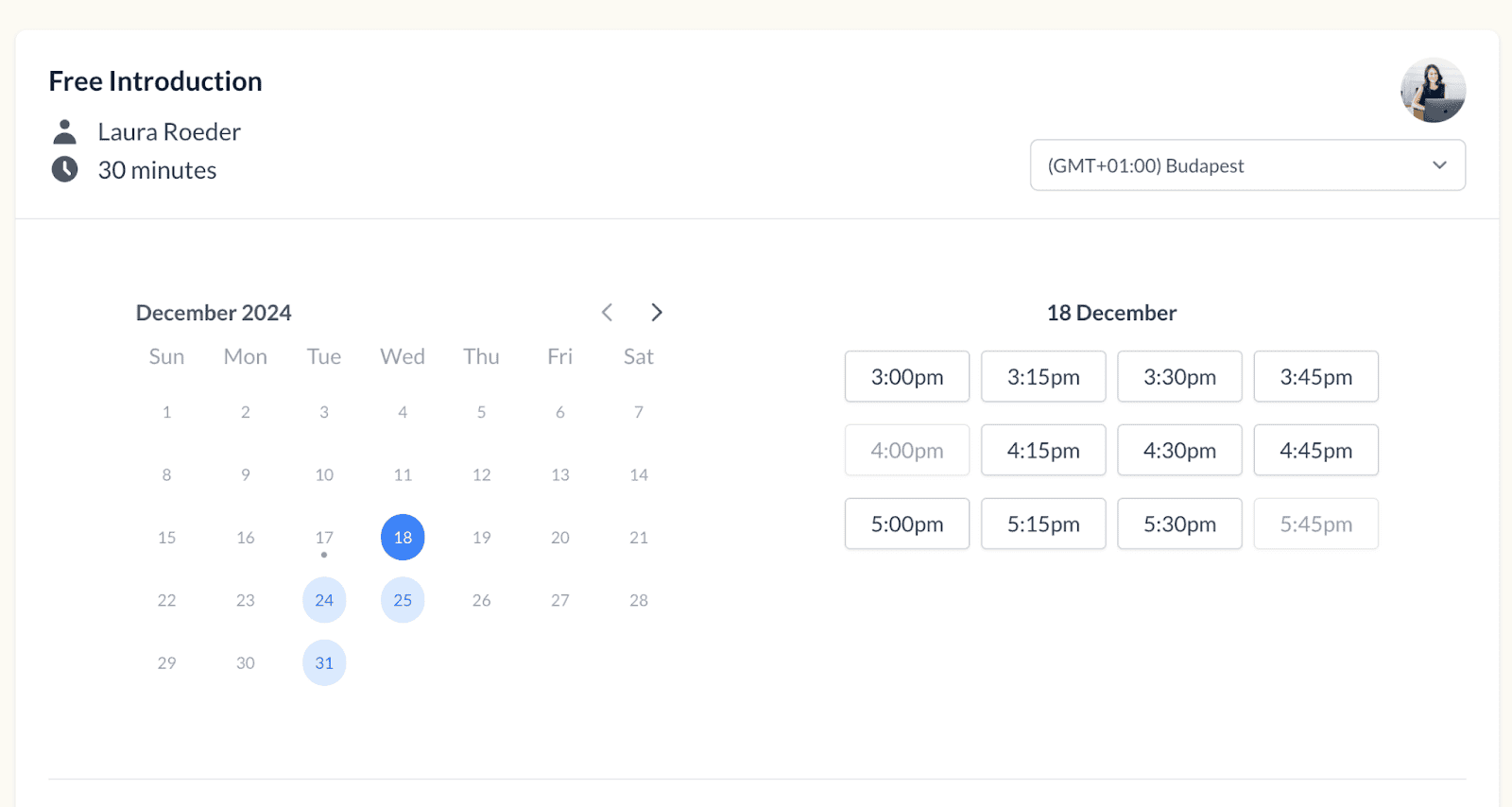
Paperbell’s default layout is made with coaches in mind and can be customized with your unique brand elements. It saves you the hassle with templates, website builders, and third-party tools.
Simply fill in the blanks and you’ll get a fully functioning coaching website with scheduling, payments, surveys, contracts, client information, and package materials plugged into it. Your clients can book you in a few clicks and access all their materials in their client portal whenever they need them.
If you want to build a bigger website with more pages, a blog, or a membership platform, you can always lead your visitors straight to your Paperbell package and booking pages.
Let’s look into how you can create that website, starting from your homepage.
Homepage: Your First Impression
Your homepage is your first impression that lets visitors decide whether they want to explore further or click away.
[ Read: Website Launch Checklist: A Complete Guide for Coaches ]
Most home pages open with a hero section with a professional, high-quality photo, a tagline, and a call to action. Make sure these elements capture your brand essence and clearly communicate your niche, whether it’s executive coaching or health and fitness.
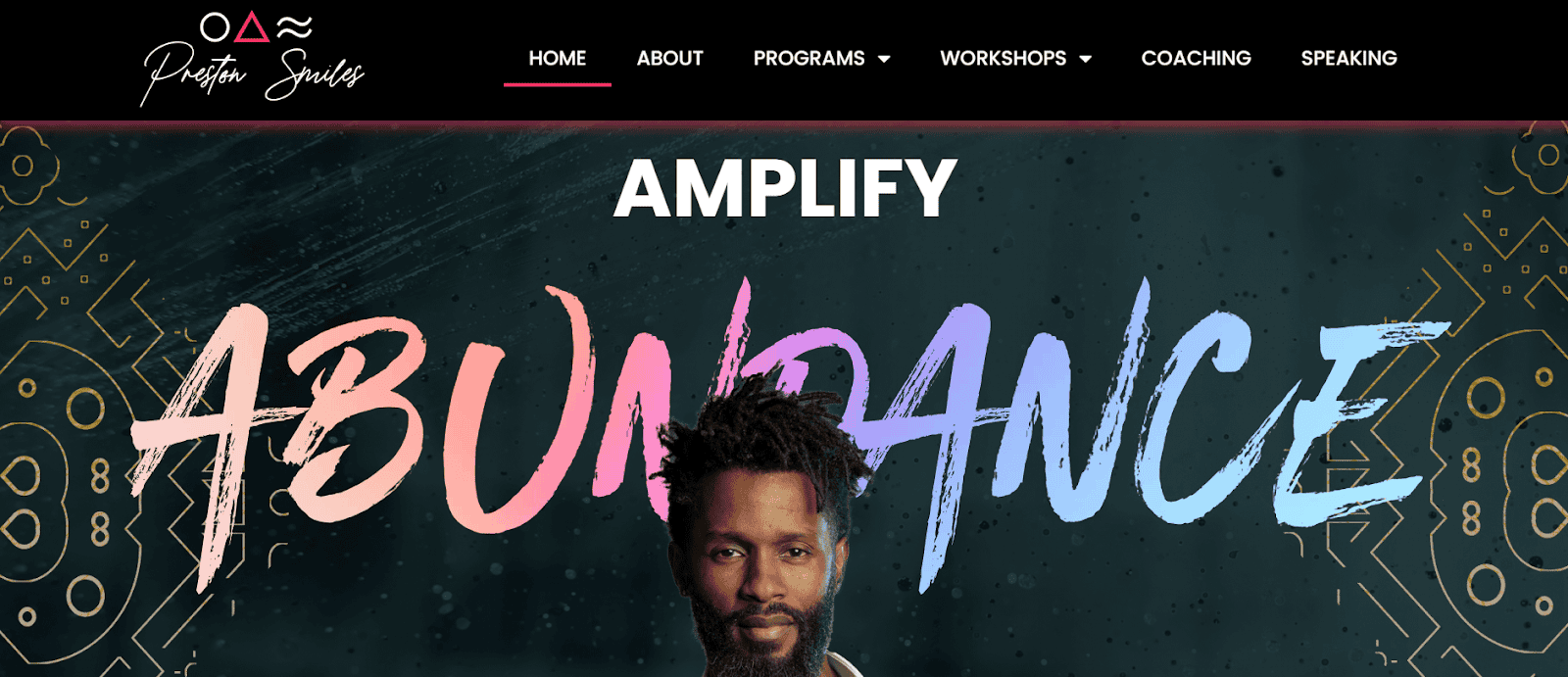
From there, your home page can lead to:
- A compelling introduction: Address your ideal client’s pain points and aspirations and share how you, as a life coach, can help them achieve the transformation they’re looking for.
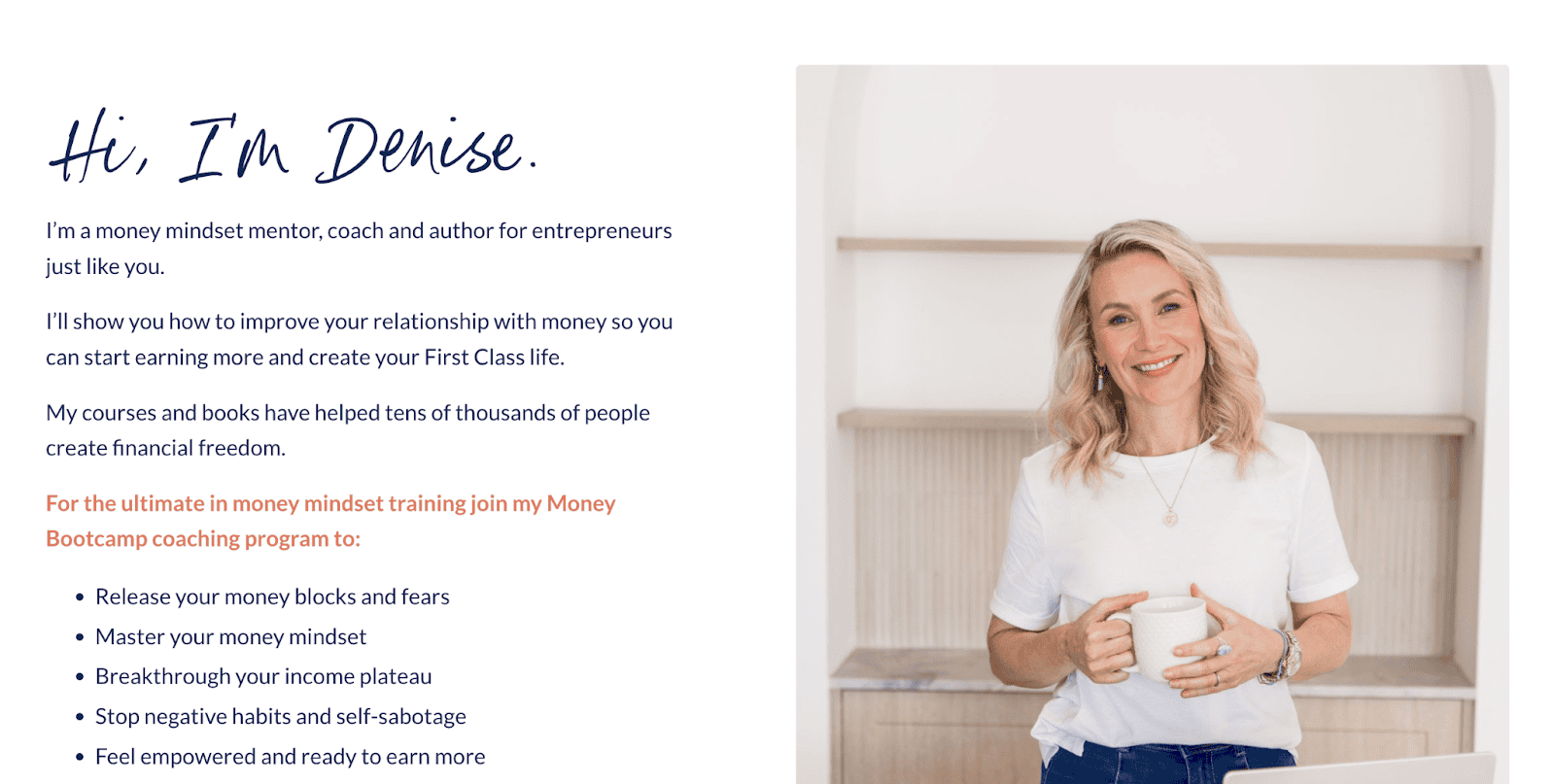
- An overview of your coaching services: Highlight your core coaching programs or packages, such as group or personal coaching. Focus on the results clients can expect, and link to your Services page for more details.
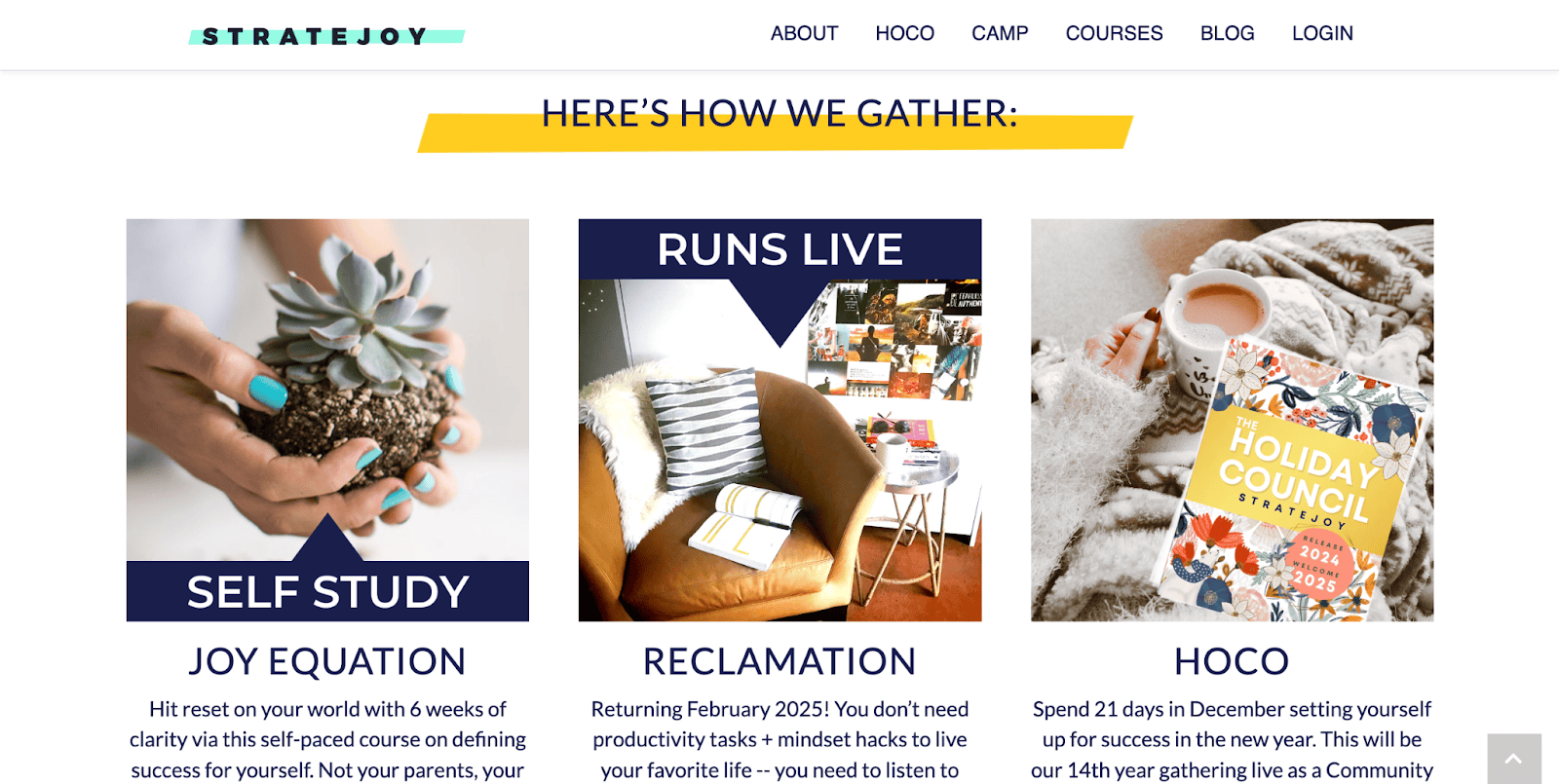
- Testimonials: Share one or two client testimonials that showcase real results. Positive feedback helps build trust and credibility quickly.
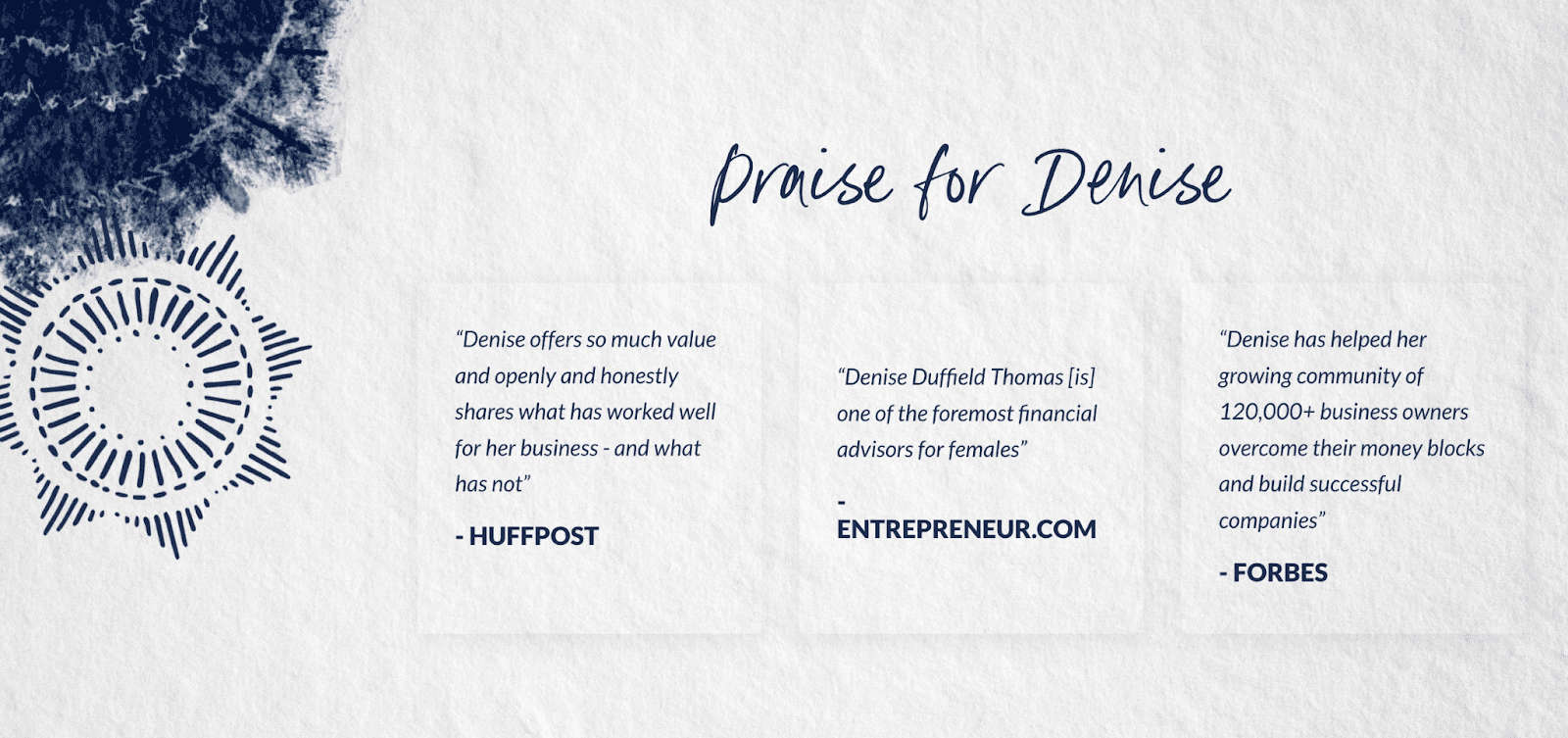
- A brief bio: Introduce who you are, what your expertise is, and what makes your coaching business unique. Link to your About page for more depth.
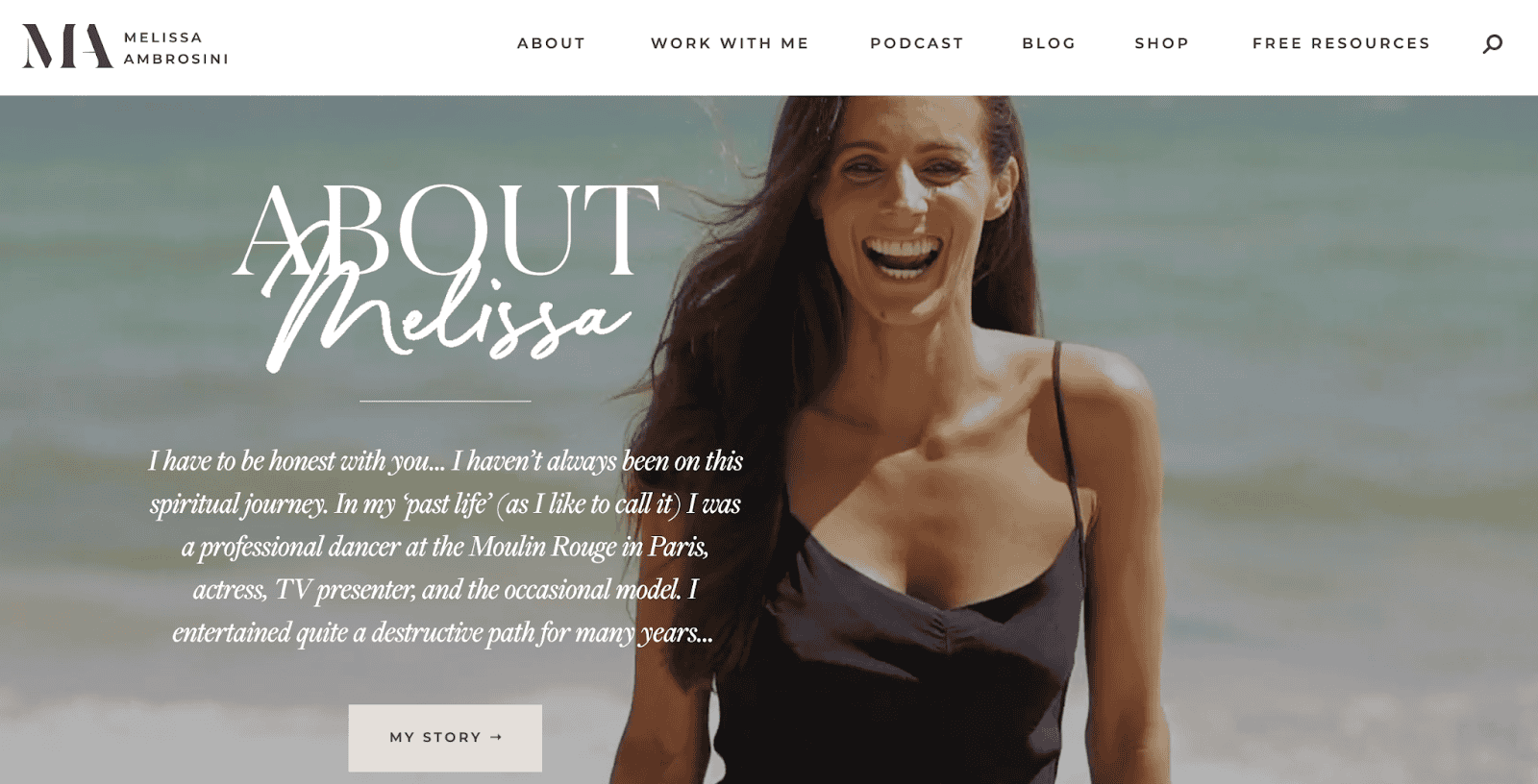
- Social proof: Feature any media appearances, partnerships, or major brands you’ve worked with.

It’s best to keep your main page skimmable with short headings, limited text, and visuals that support your message. Speak directly to your target audience and focus on the outcomes they want.
Your design, copy, visuals, and calls to action should create a customer journey that encourages leads to take the next step. Find more inspiration for your homepage in our article about the best life coaching websites.
Services Page
Your services, packages, or “Work with me” page is where potential clients discover how you can help them. Whether it’s spiritual, business or health coaching, outline what’s included in your program, your session formats and duration, and the outcomes clients can expect.
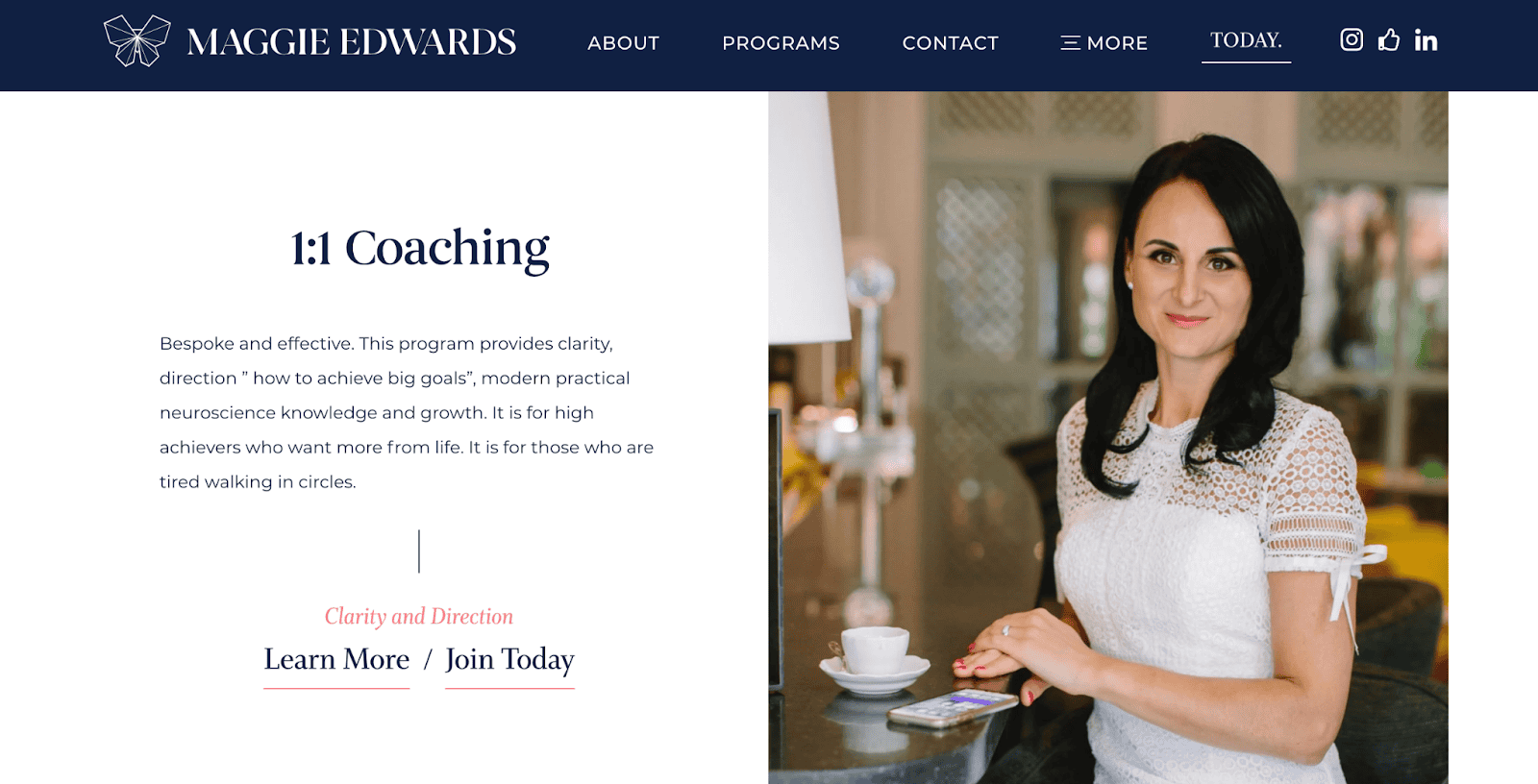
Your subpages may include more text but make sure they still have space to breathe. Structure your services page in a way that allows clients to skim through your offers and find the best fit for them.
Alternatively, you can drive leads straight to a more detailed landing page about a single program. This can be hosted on a funnel platform and optimized more heavily for conversions.
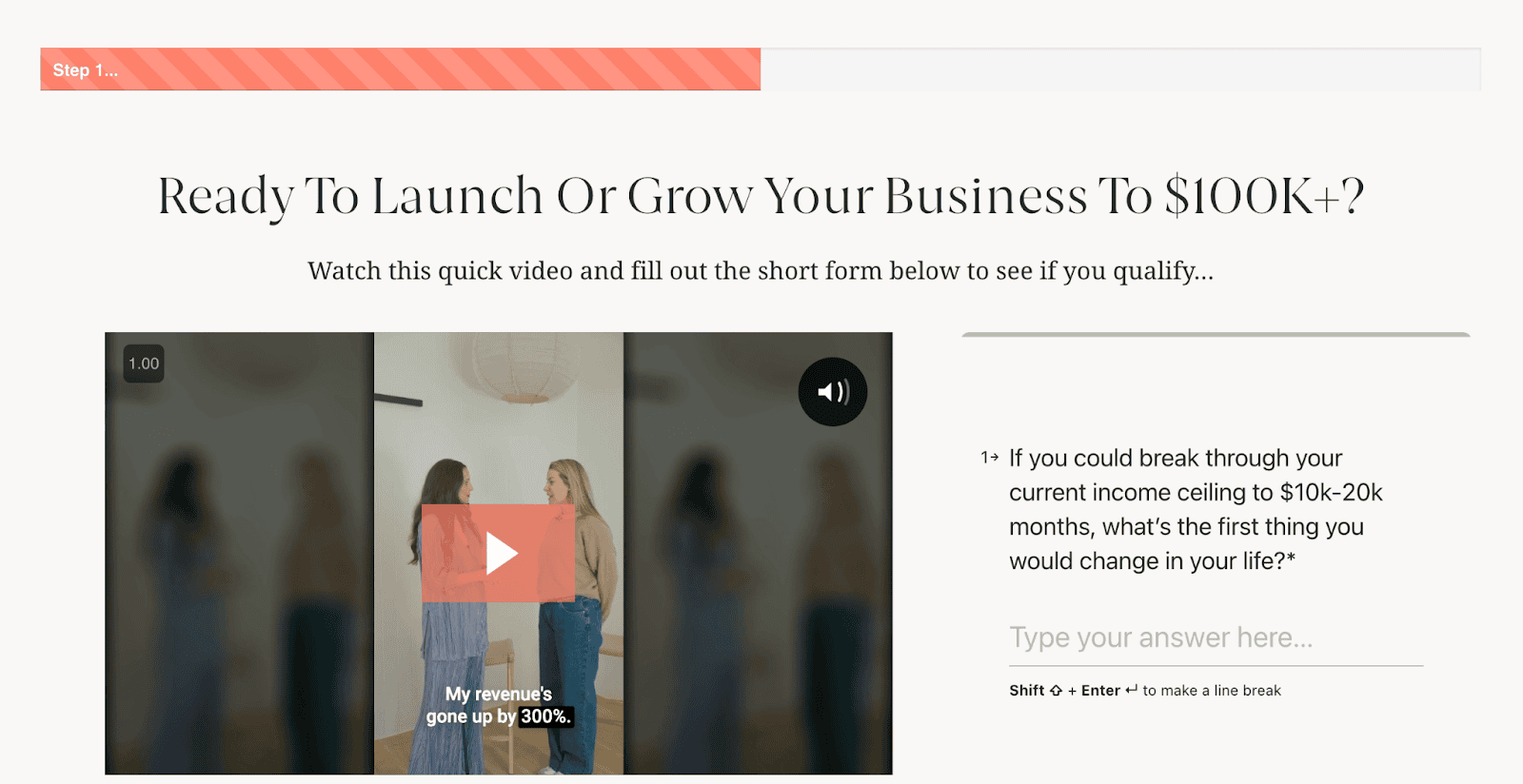
About Page Elements
Your about page is where clients can get to know you and understand what makes your life coaching business unique. Share your story, expertise, and the values that guide your work, but keep it client-focused. Explain how your background and coaching style equip you to help them.
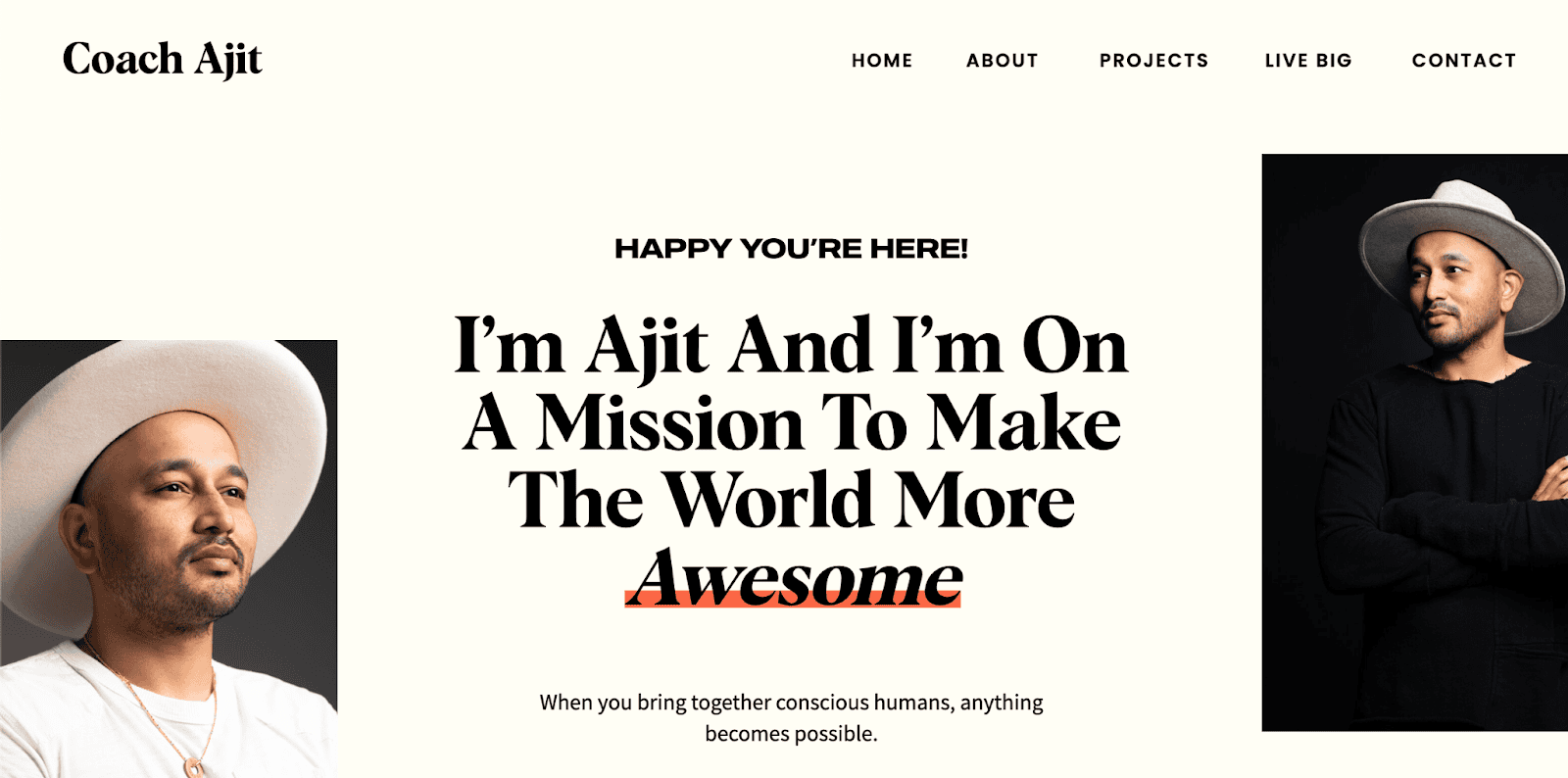
Include professional photos to make the page feel personal and approachable. You may share your origin story of what made you become a coach, your coaching philosophy, or how you found your mission.
Contact or Booking Page
Make it easy for new clients to get in touch with you through a simple contact form or calendar. Invite them to reach out and let them know if you require any specific information from them before they get on a call with you.
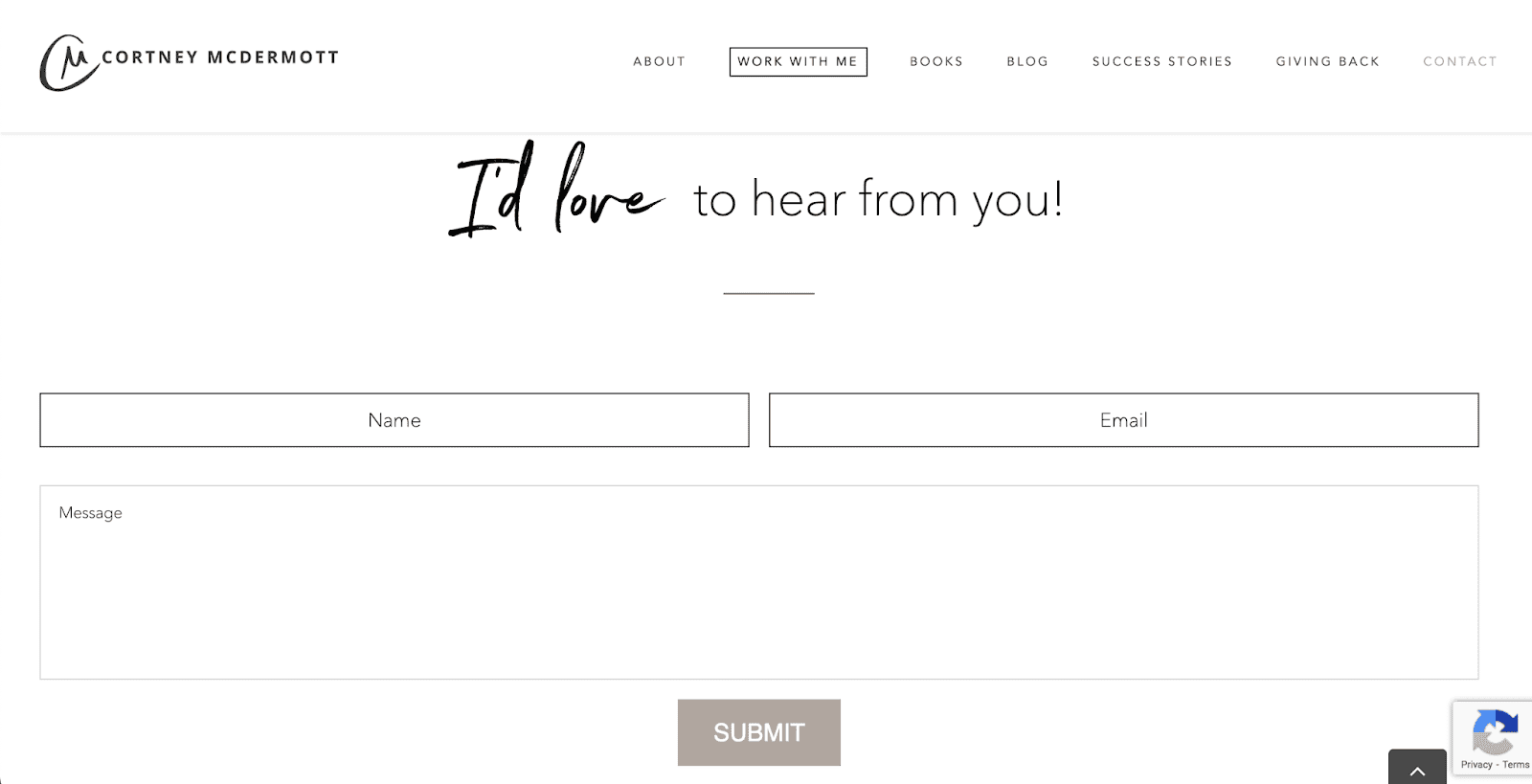
Blog or Resources Page
Creating content can position you as an expert in your coaching niche and give tangible value to clients, supporting their personal development. This could include blog posts, videos, podcasts, or guides.
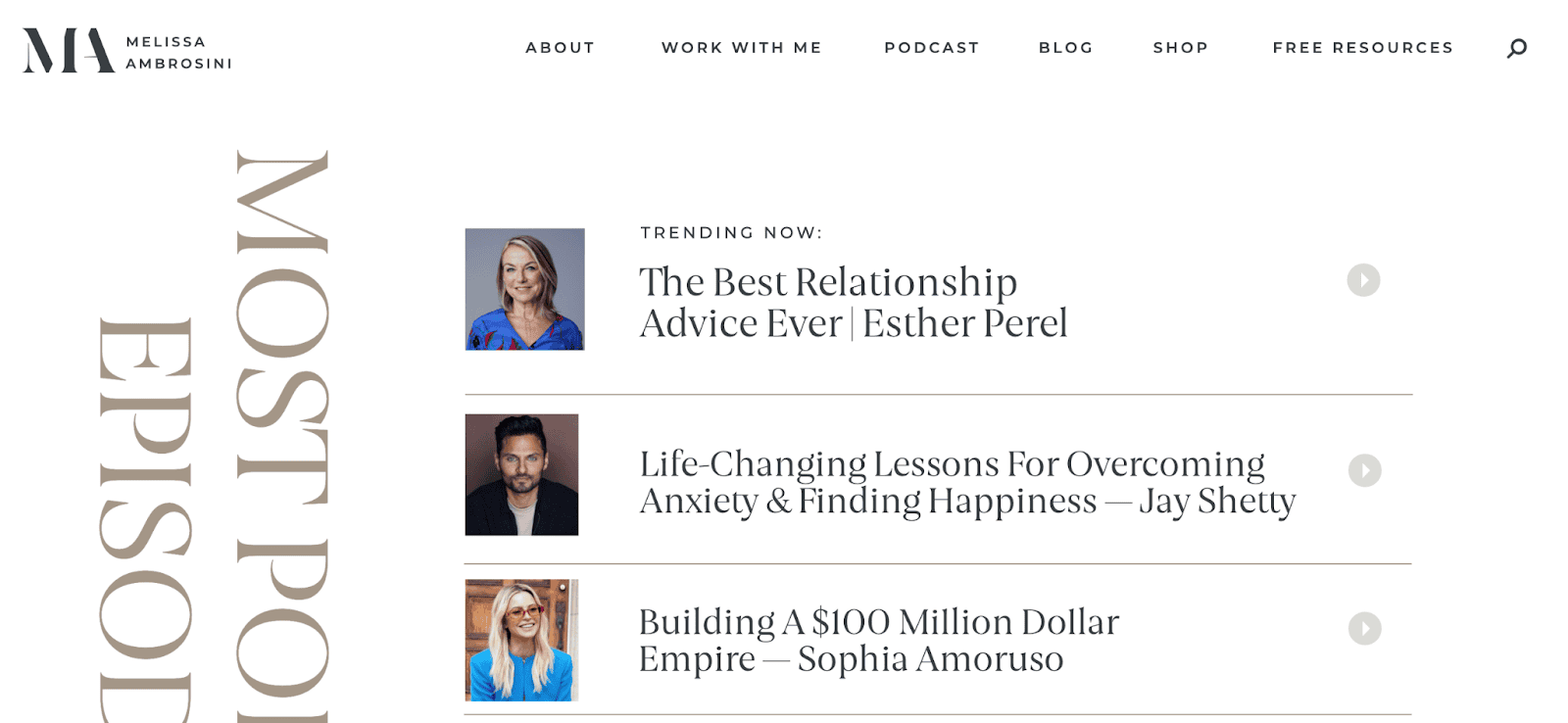
It’s also the perfect place to feature lead magnets: Free, high-value resources like ebooks, worksheets, or mini-courses in exchange for an email address. You can incorporate these downloadables into your marketing to grow your email list and nurture relationships with potential clients over time.
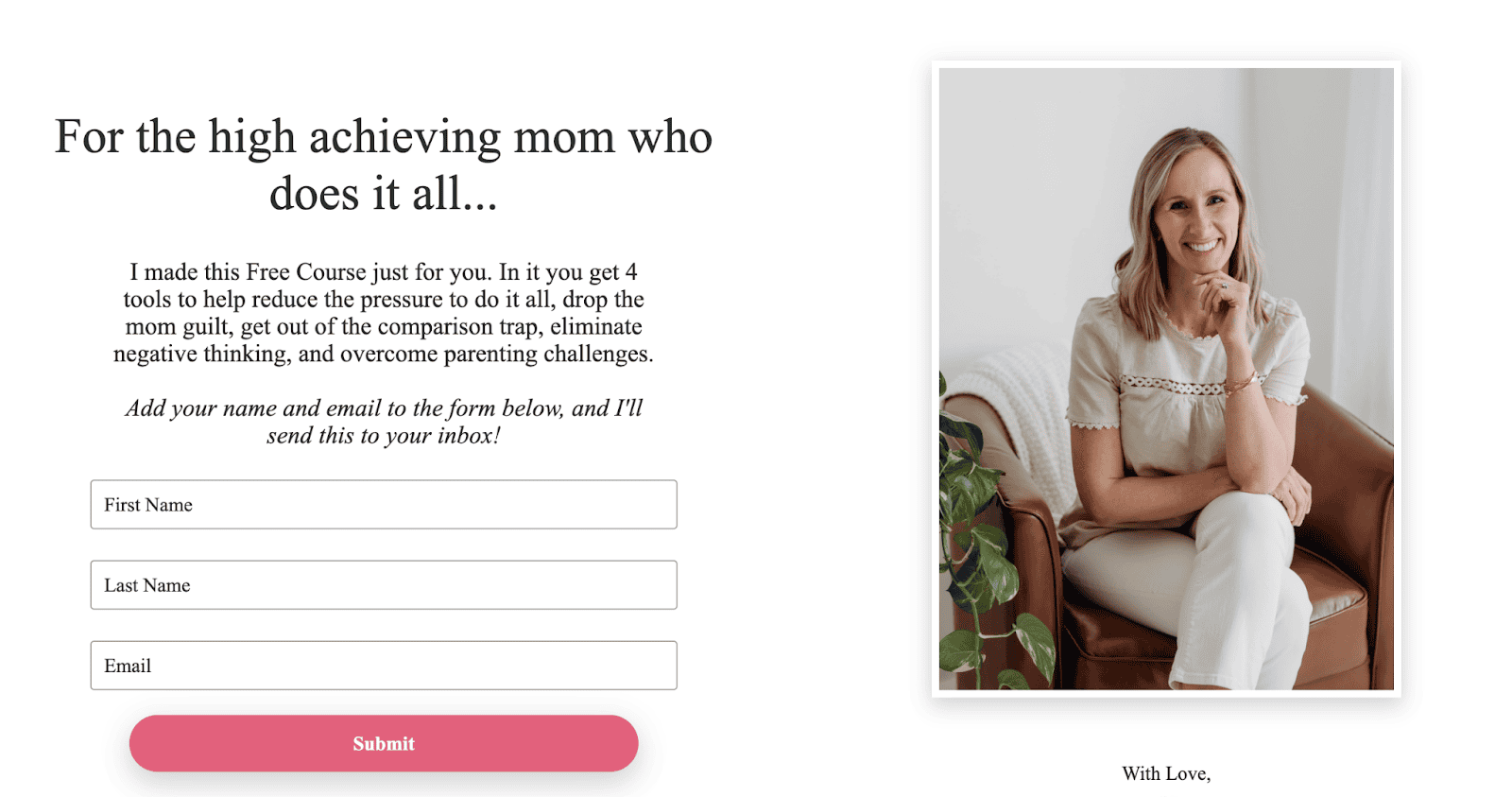
Focus on topics that address your audience’s pain points or answer common questions to give them quick wins, like how-to articles, actionable case studies, or checklists.
For example, if you are a health and fitness coach, you may share healthy recipes or offer a workout plan.
Regularly updated content not only demonstrates your expertise but also improves SEO and keeps your website visitors coming back for more.
Optional Pages for Life Coaching Websites
Here are some further pages you can consider adding to your coaching website:
- Press page: If you’ve been featured in the media, this page can showcase your press coverage, interviews, or guest appearances. It helps build credibility and authority.
- Speaking page: If you offer speaking engagements, this page can describe your keynote topics, past and upcoming events, and how to book you for speaking opportunities.
- Events calendar: An events calendar shows upcoming workshops, webinars, or in-person events, encouraging your audience to join.
- Technical pages: Terms and conditions and privacy policy can protect your intellectual property and inform visitors on how their data will be used. These are typically found in the footer.
The Most Effortless Way to Build a Coaching Website
Creating one of the top life coaching websites doesn’t have to be overwhelming with the right tools and strategy. By including these essential pages, you can set up a professional online presence that emphasizes your value and builds trust with new clients.
Remember, Paperbell is here to simplify the process and help you create a professional coaching website with ease. From booking and payments to a client client portal, Paperbell will handle your entire client management workflow and store your client data securely.
Try out Paperbell for free today.
